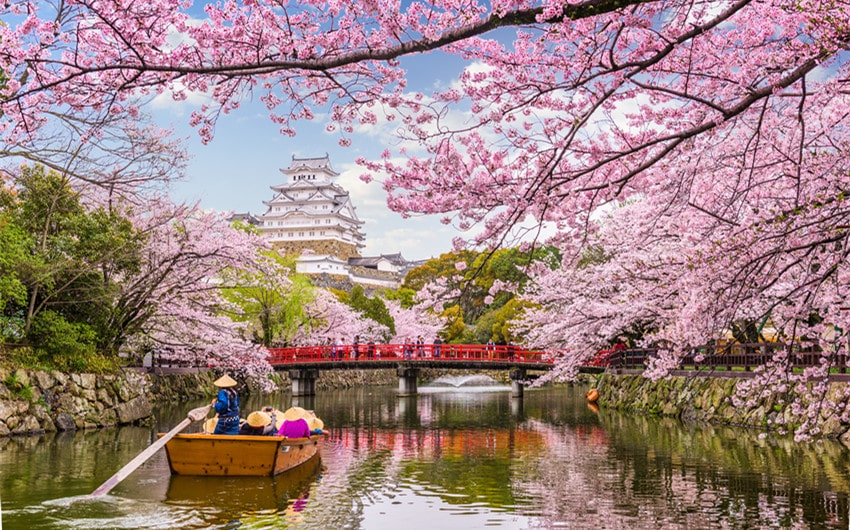In Japan, names are more than just a way to identify individuals; they’re a reflection of culture, nature, and the beauty surrounding us. Among the most enchanting are Japanese names that mean flower, embodying the delicate balance between beauty and meaning. This article delves into the world of floral Japanese names, exploring their significance, color symbolism, and the stories they carry within their petals.
The Cultural Significance of Flowers in Japan (Hanakotoba)
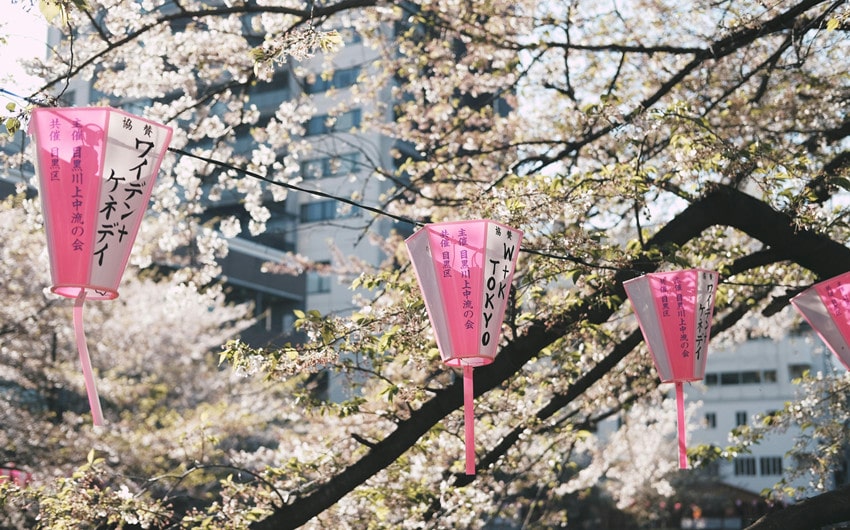
In Japan, Hanakotoba, or the language of flowers, is an age-old tradition that assigns meanings and messages to various flowers. This form of non-verbal communication is deeply embedded in Japanese culture, influencing social interactions, art, literature, and even the naming of individuals.
Flowers carry a wide range of symbolic meanings, from love and admiration to grief and farewells, making them integral to expressing emotions and sentiments that might not be spoken aloud. For instance, the cherry blossom (Sakura), symbolizes the transient nature of life, a concept that resonates deeply within Japanese aesthetics and philosophy.
Similarly, the chrysanthemum (Kiku), associated with longevity and rejuvenation, is celebrated annually in the Chrysanthemum Festival. Through Hanakotoba, flowers are not merely decorative but serve as a profound language, conveying messages of the heart and soul, and connecting people to the natural world in a deeply meaningful way.
Japanese Girl Names That Mean Flower
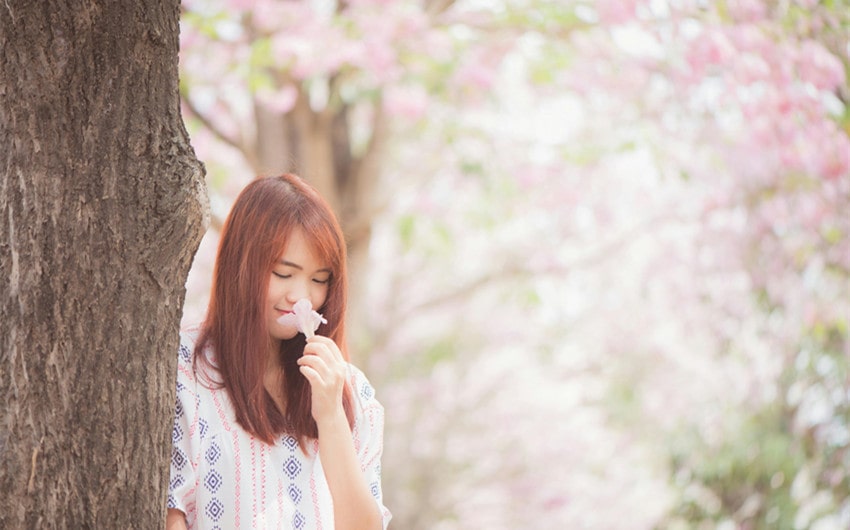
Japanese girl names that mean flower are often chosen for their beauty and the positive traits they symbolize. Each name is not just a label but a wish or a hope for the child’s future. Here’s a list of these enchanting names:
- Sakura (桜): Cherry blossom, symbolizing beauty and the transient nature of life.
- Hana (花): Literally means “flower,” representing beauty and delicateness.
- Kaede (楓): Maple, a name that evokes the beauty of nature.
- Ayame (菖蒲): Iris, symbolizing good news and messages.
- Ren (蓮): Lotus, representing purity and enlightenment.
- Yuri (百合): Lily, connoting purity and renewal.
- Sumire (菫): Violet, symbolizing small love, honesty, and modesty.
- Kiku (菊): Chrysanthemum, standing for longevity and rejuvenation.
- Momo (桃): Peach blossom, symbolizing longevity and eternal youth.
- Ume (梅): Plum blossom, representing endurance and nobility.
- Tsubaki (椿): Camellia, often associated with love and admiration.
- Suisen (水仙): Daffodil, symbolizing regard and unrequited love.
- Himawari (向日葵): Sunflower, representing respect and passionate love.
- Kosumosu (コスモス): Cosmos, signifying order and beauty in the universe.
- Ran (蘭): Orchid, symbolizing love, beauty, and refinement.
- Shion (紫苑): Aster, conveying thoughts of love and memories.
- Asagao (朝顔): Morning glory, symbolizing brief love and the bond between lovers.
- Sazanka (山茶花): Camellia sasanqua, representing modesty and love.
- Nanohana (菜の花): Rapeseed flower, signifying humility and the simple beauty of nature.
- Fuji (藤): Wisteria, associated with long-lasting love and immortality.
- Kikyo (桔梗): Bellflower, symbolizing unchanging love, honesty, and obedience.
- Ajisai (紫陽花): Hydrangea, representing heartfelt emotions and gratitude.
- Botan (牡丹): Peony, a symbol of bravery and honor.
- Sakurako (桜子): Child of cherry blossom, embodying the beauty of the sakura.
- Hanako (花子): Flower child, a name that evokes the innocence and beauty of flowers.
- Haruka (遥花): Distant flower, suggesting a person who is both mysterious and beautiful.
- Rika (莉花): Beautiful flower, symbolizing the ideal of beauty and grace.
- Yuriko (百合子): Child of lilies, representing purity and the beauty of youth.
- Manaka (愛花): Dear flower, signifying cherished love and beauty.
- Hinagiku (雛菊) – Meaning “daisy,” this name symbolizes innocence and purity.
- Sayuri (小百合) – Meaning “little lily,” it emphasizes purity and renewal.
- Ayana (彩菜): “Colorful flower,” signifying diversity, beauty, and the vibrant colors of a blooming flower.
- Himari (陽葵): “Sunflower,” symbolizing warmth, positivity, and adoration, as sunflowers turn to face the sun.
Japanese Boy Names That Mean Flower
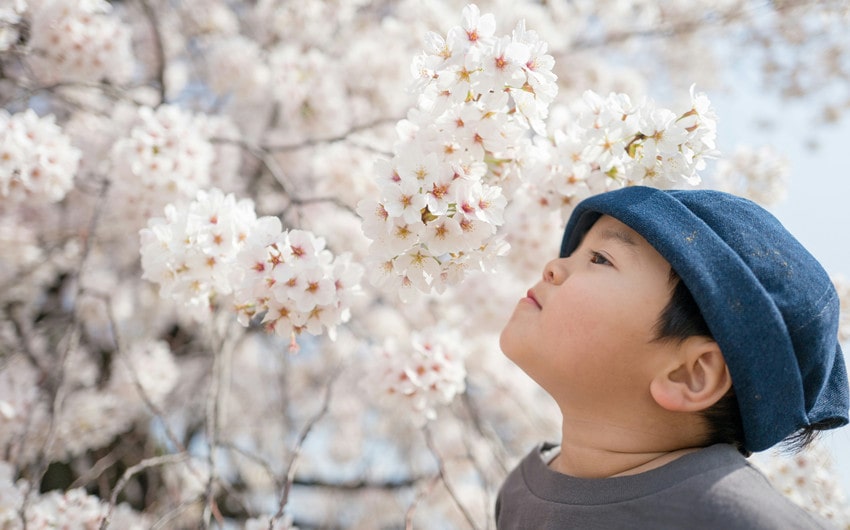
Japanese boy names that mean flower are rarer compared to female names but carry deep significance and beauty. These names often symbolize strength, beauty, and virtues that parents wish upon their sons. Here’s a comprehensive list of Japanese boy names related to flowers:
- Kiku (菊): Meaning “chrysanthemum,” this name symbolizes longevity, rejuvenation, and nobility. The chrysanthemum is also associated with the Imperial family in Japan, adding a layer of prestige.
- Ren (蓮): Signifying “lotus,” it represents purity, enlightenment, and the ability to rise above challenges. The lotus is revered in Buddhist traditions for its ability to bloom beautifully above murky waters.
- Botan (牡丹): Peony, a flower associated with bravery, honor, and good fortune. It’s often used in art and festivals to denote masculinity and valor.
- Tsubaki (椿): Meaning “camellia,” this name is associated with love, affection, and admiration. Unlike many flowers, camellias do not wilt but instead fall whole, symbolizing unbroken love.
- Shion (紫苑): Aster tataricus, a flower that symbolizes remembrance, love, and a sense of belonging. It’s a name that conveys depth and thoughtfulness.
- Ayame (菖蒲): Although often associated with girls, Ayame, meaning “iris,” can be a boy’s name too. It represents courage, good news, and wisdom.
- Kikyou (桔梗): Bellflower, symbolizing unchanging love, honesty, and obedience. It’s a name that embodies the virtues of fidelity and integrity.
- Sakaki (榊): Although not directly a flower, Sakaki is a sacred tree used in Shinto rituals, symbolizing purity and the divine. It suggests a connection to tradition and spirituality.
- Rindou (竜胆): Gentian flower, which blooms in challenging environments and thus symbolizes resilience, strength, and overcoming obstacles.
- Asagi (浅葱): Although meaning “light blue” and often associated with certain types of Japanese koi, Asagi conveys a sense of freshness, calm, and the beauty of nature, reminiscent of early spring flowers.
- Haruto (陽翔): While not directly meaning “flower,” Haruto, meaning “flying sun” or “soar sun,” evokes the warmth and life-giving force of sunlight, nurturing flowers and life alike. It represents optimism, growth, and the pursuit of higher aspirations.
- Shigeru (茂) – Meaning “luxuriant,” it could represent a lush field of flowers.
- Haruki (春樹): “Spring tree,” evoking images of trees blooming with flowers in the spring, symbolizing new beginnings and renewal.
Japanese Last Names That Mean Flower

Japanese last names that mean flower often reflect the family’s connection to nature, beauty, and specific virtues associated with floral elements. Here’s a list of such last names, along with their meanings:
- Hanabishi (花菱): Flower diamond, symbolizing elegance and beauty.
- Hanayama (花山): Flower mountain, representing strength and natural beauty.
- Kusabana (草花): Grass flower, reflecting simplicity and natural beauty.
- Sakurada (桜田): Cherry blossom field, signifying renewal and the ephemeral nature of life.
- Sumida (墨田): While often associated with the Sumida River, it can also imply a living area near the water where flowers bloom.
- Tachibana (橘): Wild orange blossom, symbolizing good fortune and happiness.
- Umemura (梅村): Plum blossom village, representing endurance and the arrival of spring.
- Fujiwara (藤原): Wisteria field, signifying longevity and grace.
- Ayame (菖蒲): Iris, associated with good news and messages.
- Matsubara (松原): Pine field, while not a flower, it suggests longevity and steadfastness, akin to the evergreen nature of pine amidst seasonal flowers.
Unisex Japanese Names That Mean Flower
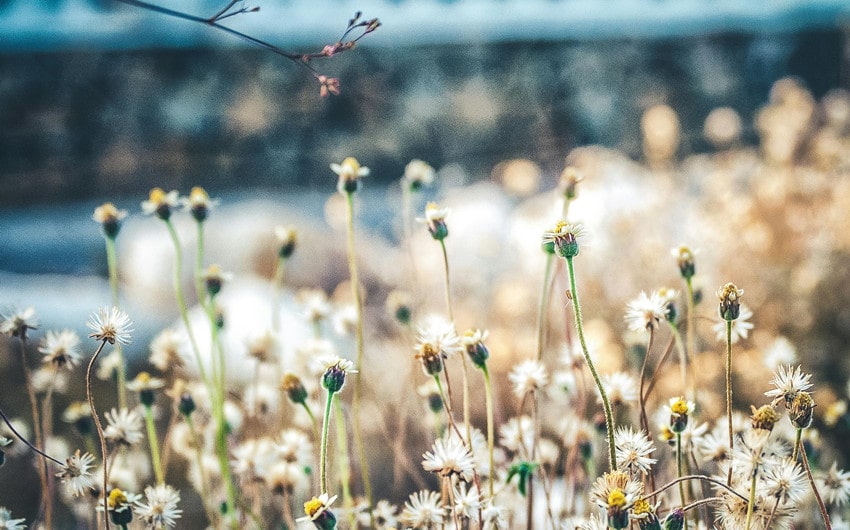
- Aoi (葵): This name, meaning hollyhock, is popular for both boys and girls. It symbolizes growth, prosperity, and the ambition to reach towards the sun. The Aoi Matsuri, or Hollyhock Festival, is one of Kyoto’s three major festivals, highlighting the cultural significance of this flower.
- Ren (蓮): Meaning lotus, it represents purity, beauty, and rebirth, as the lotus blooms beautifully above muddy waters. This name is favored for its spiritual symbolism and the lotus’ significance in Buddhist teachings, reflecting a journey towards enlightenment.
- Sora (空): While not directly a flower name, Sora means “sky” and evokes images of openness, freedom, and the boundless nature of the sky above fields of flowers. It’s chosen for its connotations of vast potential and the serene beauty of the sky that complements the earth’s florals.
- Kaede (楓): Maple, a name that brings to mind the changing seasons and the beauty of nature’s cycles. The maple leaf, with its intricate design and vibrant colors, represents the elegance and transient beauty of life, qualities appreciated in both boys and girls.
- Rin (凛): Signifying dignity or grace, it evokes the image of a flower standing strong and beautiful against the breeze. Rin captures the essence of resilience and elegance, qualities admired universally.
- Asuka (明日香): Meaning fragrance of the bright day, Asuka can be associated with the fresh, invigorating scent of flowers at dawn. It represents new beginnings and the hope that comes with each new day.
- Haru (春): Meaning spring, it is a time when flowers bloom in abundance, symbolizing renewal, new life, and joy. This name is chosen for its representation of the rejuvenation and vibrant life force of spring.
- Yuri (百合): Traditionally meaning lily, Yuri is a name that transcends gender boundaries, symbolizing purity, passion, and renewal. The lily flower’s diverse varieties and colors make this name versatile and universally appealing.
- Kanon (花音): Meaning flower sound, Kanon evokes the serene and subtle beauty of nature, reminiscent of the gentle sound of a breeze through a blooming garden. It represents a harmonious connection with the natural world.
- Mizuki (瑞希): Although not directly a floral name, Mizuki means beautiful moon or water moon, symbolizing the reflective beauty of moonlight on water, creating a tranquil and beautiful image that could be likened to the peacefulness of a nocturnal flower garden.
Japanese Names That Mean Pink Flower
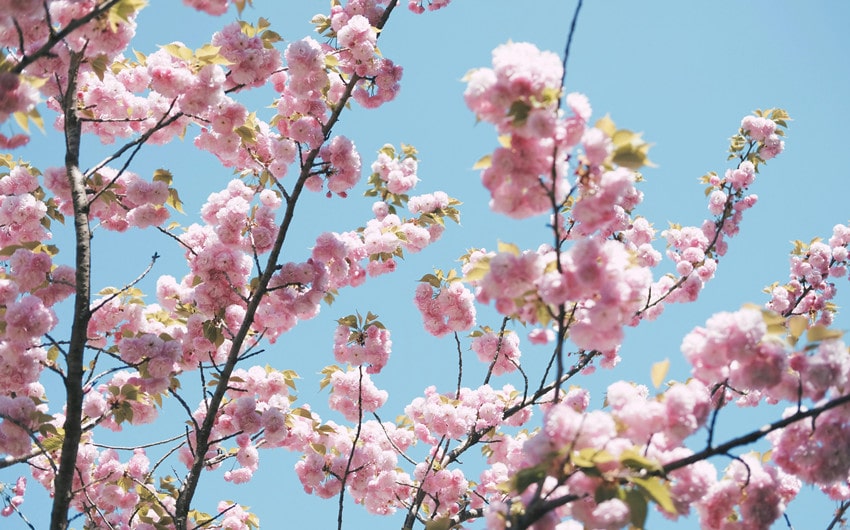
Names that specifically mean or are associated with pink flowers reflect delicate beauty, compassion, and gentility. Below are Japanese names linked to the symbolism of pink flowers:
- Momoka (桃花): Peach flower, symbolizing youth and immortality.
- Sakurako (桜子): Child of cherry blossom, embodying beauty and the fleeting nature of life.
- Ayaka (彩花): Colorful flower, often associated with the vibrant hues of pink flowers.
- Momo (桃): Literally meaning “peach,” it is often associated with the soft, pink blossoms of the peach tree, symbolizing longevity and love.
- Ichigo (苺): Strawberry, while not a flower, the name is often associated with sweetness and the pink color of strawberry flowers.
- Haruka (遥花): Distant flower, which can be associated with the delicate beauty of pink blossoms viewed from afar.
- Akane (茜): Madder, a plant that produces a pinkish-red dye, often linked with the beauty of sunset skies and the delicate shades of certain flowers.
- Sumire (菫): Violet, although traditionally violet in color, the name can evoke the softness associated with pink hues in the spectrum of floral beauty.
- Kohana (小花): Little flower, often evoking images of dainty, pink blossoms.
- Ran (蘭): Orchid, which can vary in color but includes varieties in delicate shades of pink, symbolizing love and beauty.
Japanese Names That Mean Red Flower
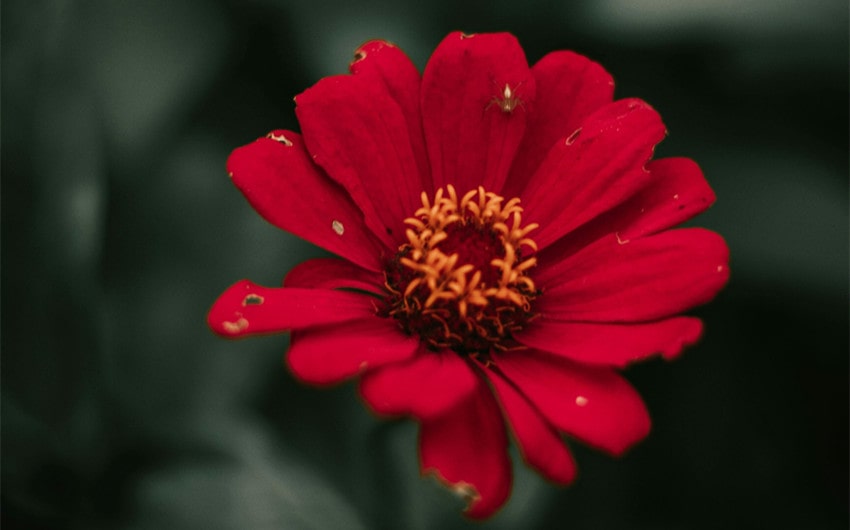
Red flowers in Japan symbolize passion, love, strength, and sometimes, a noble death. Names inspired by red flowers carry deep emotional meanings and are often chosen for their vibrant associations. Here are several Japanese names connected to the concept of a red flower:
- Akane (茜): A name meaning deep red, akin to the dye from the madder plant, symbolizing intense emotions and passion.
- Beni (紅): Literally means “crimson” or “red,” reflecting the vibrant color of many flowers and symbolizing a strong, passionate nature.
- Himawari (向日葵): Sunflower, though not always red, this name can represent the sun’s fiery color and the flower’s association with adoration and loyalty.
- Kurenai (紅): Another name for crimson, symbolizing deep affection and bravery.
- Momiji (紅葉): Maple, representing the red leaves, but can be associated with the red hues in maple flowers, symbolizing peace and calm.
- Sekirei (赤花): Red flower, a direct representation of red-flowered plants, symbolizing a vibrant and spirited life.
- Akahana (赤花): Another term for “red flower,” symbolizing love, passion, and courage.
Japanese Names That Mean Blue Flower
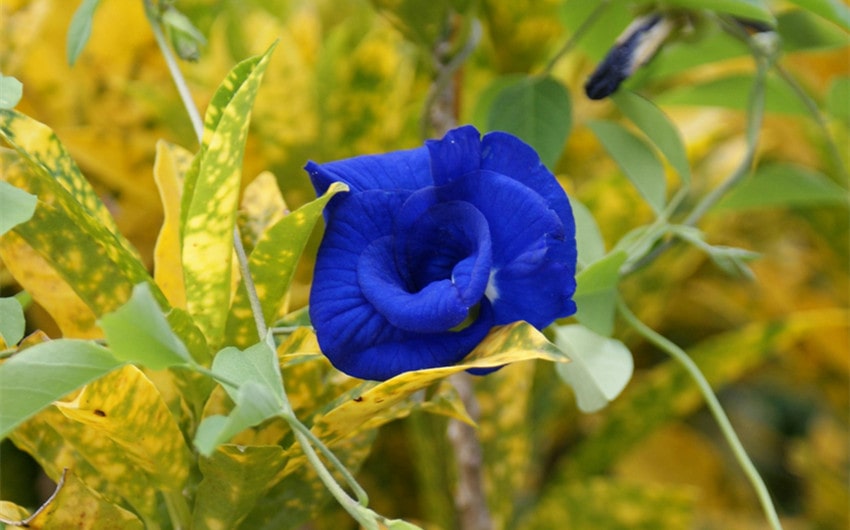
Blue flowers stand for serenity, openness, and mystery. Japanese names that mean blue flower or are associated with the color blue often convey a sense of tranquility and depth. Below is a list of names tied to the symbolism of blue flowers:
- Aoi (葵): Hollyhock, which can come in various colors, including blue, symbolizing ambition and respect.
- Rindo (竜胆): Gentian, a blue flower symbolizing integrity and victory.
- Sora (空): Meaning “sky,” it’s associated with the vast, open blue sky, evoking a sense of freedom and imagination, akin to the boundless expression of blue flowers.
- Ao (碧): A name meaning “blue,” evoking images of clear blue skies and deep blue seas, often associated with the calm and mystery of blue flowers.
- Sumire (菫): Violet, which can have blue-purple flowers, representing small but profound beauty and fidelity.
- Ran (蘭): Orchid, which can include blue varieties, symbolizing elegance and a unique spirit.
- Konpeki (紺碧): Deep blue, a name evoking the deep color of the ocean, symbolizing depth, wisdom, and tranquility.
- Aoi (碧): Traditionally meaning “blue” or “hollyhock,” Aoi can be directly related to the blue color and is a popular name for both boys and girls.
- Ruri (瑠璃): This name means “lapis lazuli,” referencing the deep, mesmerizing blue of the precious stone.
Japanese Names That Mean Poisonous Flower
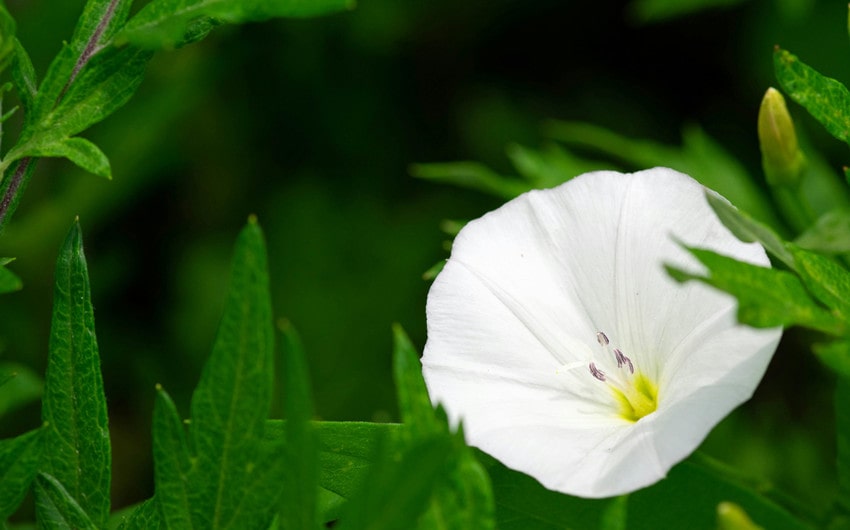
Names inspired by poisonous flowers are rare in Japanese culture, reflecting the complexity and respect for nature’s dual aspects of beauty and danger. These names might evoke a sense of mystery, strength, and the resilience needed to overcome challenges:
- Dokukisou (毒気草): A name meaning “poisonous weed,” it’s not a common name but symbolizes the dangerous beauty of nature and could be used metaphorically to represent a person with a strong, independent spirit.
- Kuchinashi (橘梨): Gardenia, though not inherently poisonous, this flower can symbolize secret love or a hidden aspect of oneself that is both beautiful and potentially dangerous.
- Aconite (トリカブト): A name derived from a highly poisonous flower, representing caution, protection, and the power hidden in beauty. It’s a bold choice, symbolizing strength and the ability to protect oneself and others.
- Rindō (竜胆): “Gentian,” a beautiful but bitter flower, which could metaphorically represent the beauty that hides potential danger, mirroring the concept of a poisonous flower.
- Arisu (有毒): Although “Arisu” sounds like a phonetic adaptation of “Alice” or similar names, using kanji for “poison” (有毒) can subtly evoke the notion of toxicity or poison, giving a mysterious edge to the name.
- Mayumi (真弓): “True bow,” but when creatively interpreted, “Mayu” can mean cocoon, suggesting protection against hidden dangers, much like some poisonous flowers use their toxicity as defense.
- Yūgao (夕顔): “Evening face,” referring to the moonflower. While beautiful and enchanting in the moonlight, some varieties carry toxic properties, perfectly embodying the allure of dangerous beauty.
- Sumire (スミレ): “Violet,” though not inherently poisonous, the name can carry a darker elegance, hinting at the beauty and potential peril of the natural world.
Conclusion
Japanese names that mean flower stand as a testament to the country’s profound connection with nature and culture. They offer a beautiful lens through which we can appreciate the intricate relationship between identity, nature, and the stories we choose to carry forward.

